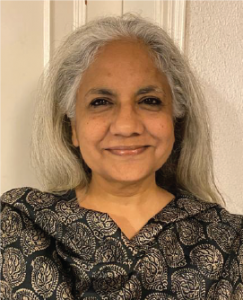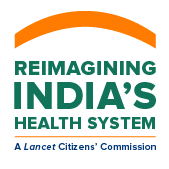In Conversation: Sandhya Venkateswaran, Senior Fellow, Centre for Social and Economic Progress
September 12, 2021

One of the key elements to introducing and successfully implementing UHC is political attention to and interest in health. Leaders, both at national or sub national level, have multiple competing asks for their attention and resources. Prioritising one over another is driven by the national context, political incentives, citizen demand, amongst other factors. Understanding the role these have played in the Indian context becomes imperative to bring about required health system reforms aimed at UHC.; an issue that has not received adequate attention till now.
The Commission has positioned the political economy of health work within the context of increasing public resources to health, but I believe that separating financing from health delivery is an artificial divide. Mobilising public resources is integrally linked with where and how these resources are to be spent, and the return on investment. Questions of political economy then become key to the entire work ecosystem of health, financing, provision, regulation. These are the areas of focus for my work in the Commission.
The challenges to UHC in India are several, in a context of large inequities in health access, quality concerns in health services, poor health outcomes and financial risk due to healthcare expenditures. Some of these include financing healthcare and population health, the design and functioning of health systems; governance and capacity to deliver; accountability and responsiveness within the system. The health of the delivery system, it could be argued, is amongst the first order drivers of health in India, including 1) Public Health; 2) Primary Healthcare; 3) Secondary care; 4) Tertiary care.
In an environment of continuing low public investments in health, less than optimal utilisation of investments that are currently made, and considerable fragmentation of resources, financing healthcare remains a key issue. India’s mixed health system, where private providers are the predominant providers of health services, is marked with a lack of coherence in provision, with extreme fragmentation of health provision, both horizontally and vertically. The public and private provision systems seem to run in parallel, and a combination of information asymmetry and poor regulation results in low accountability and large and inefficient expenditures on healthcare. A system architecture that does not adequately prioritise preventive and promotive health, combined with hyperbolic preferences in healthcare, has led to India’s health systems responding to discreet health events.
While the introduction of health and wellness centres suggests the recognition of the importance of primary healthcare, India needs greater attention to a strong primary care system that is accessible to all, ensuring health promotion and disease prevention/detection at the appropriate time and level, leading to better health outcomes and preventing large financial outflow due to delayed treatment. The historical focus of India’s health system has been on family health and infectious diseases. Primary care facilities, consequently, have provided a narrow set of services, catering to less than 15 percent of morbidities. With the rising non-communicable disease burden, the role of comprehensive primary care stands out for proactive, patient centered, long term care, underlining the need to expand the scope of primary care.
The Commission is focusing on a set of critical issues and the development of how these come together to contribute to better health outcomes, improved and equitable access to health services and financial risk protection. The analysis emerging from the work of the Commission, we hope, will add to the body of scholarship that can inform India’s pathway to UHC.
